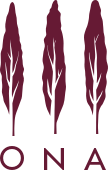
La Montaña, Honduras, Washed
- Regular price
- $38.50
- Sale price
- $38.50
- Regular price
-
- Unit price
- per
Caramel, yellow peach and floral
COFFEE PROFILE
This Washed, Geisha lot from La Montaña in Honduras has a transitioning sweetness, with notes of caramel, yellow peach and a beautiful floral note.
| TASTES LIKE | Caramel, yellow peach and floral |
| ROAST | Filter |
Story
Perched high in the mountains of Las Vegas, Santa Bárbara, Finca La Montaña is the life's work of Nery Ronaldo Martinez Alvarado. Nery's journey in coffee began in childhood, assisting his family on the farm and later selling coffee in the commodity market. Around 2015, he made a pivotal shift towards specialty coffee production, focusing on small, meticulously managed micro-lots and quality-driven processing. This transition was a turning point, with export operations handled through Exportadora San Vicente.
At approximately 1,750 metres above sea level, La Montaña benefits from cool temperatures and slow cherry maturation, fostering complexity and aromatic clarity in the cup. The farm's excellence was formally recognized when it ranked in the 2024 Honduras Cup of Excellence, confirming its status among the top tier of Honduran specialty coffee producers.
This Geisha lot epitomizes Nery's dedication at La Montaña, blending extreme altitude, precise farming, and disciplined washed processing. It embodies both his ambition and the emerging prestige of Santa Bárbara as a leading origin in Central America.
| PRODUCER | Nery Ronaldo Martinez Alvarado |
| REGION | Las Vegas, Santa Bárbara |
| VARIETAL | Geisha |
| PROCESS | Washed |
| ALTITUDE | 1750 masl |

Origin
Las Vegas, Santa Bárbara, Honduras
Santa Bárbara is celebrated as one of Honduras' premier specialty coffee regions, distinguished by its steep, mountainous terrain and a robust smallholder culture. Over the past two decades, this region has increasingly focused on quality and differentiation. Nationally, Honduras' coffee sector saw significant expansion in the 20th century, with further advancements in quality and technical support through institutions like Instituto Hondureño del Cafe (IHCAFE), established in the 1970s to bolster production and farmer support.
As specialty markets evolved, Santa Bárbara gained recognition for its quality-centric export relationships and competitive pathways, including distinctions like Cup of Excellence recognition and microlot separation. This shift has transformed Honduran coffee from a volume supply to a distinctive origin, highlighting the unique qualities of regions like Santa Bárbara.
BREW GUIDE
How to get the best tasting cup
NOTE THESE ARE A STARTING POINT AND INDICATE A RANGE TO WORK WITHIN
| Age Best Used | 7-20 days after roast |
| Brew Parameters | Dose 20g in a V60 and add 300g of water in 5 pours of 60g at 90 degrees C. Start with a 60g bloom for 30 seconds then allow water to drain through each subsequent time before adding more water, aim to finish at 3:00. |
| Best Freeze Date | 7-12 days after roast |






